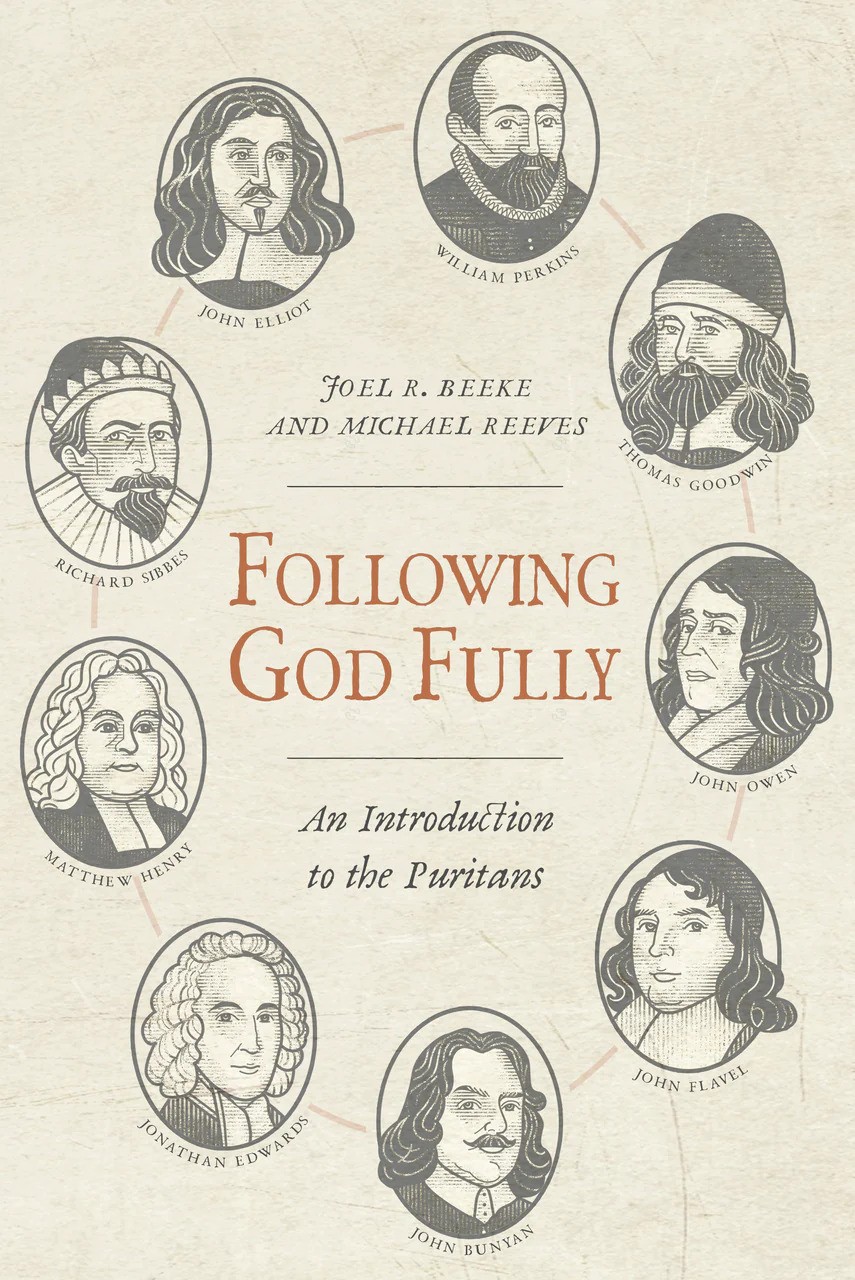This book is for those who have only heard of the Puritans as a movement or a vague idea, and can’t name a single person from that time. William Perkins… who?
It’s for those who belong to most major Protestant denominations in Australia, as beneficiaries of the Puritans’ reforming work.
It’s for those who want refreshing, encouraging and real-life examples of how a deep knowledge of God’s Word can lead to inflamed devotions for the Lord Jesus, rather than mere games for the intelligentsia and ‘theological ping-pong’ (148).

Following God Fully: An Introduction to the Puritans
Joel R. Beeke and Michael Reeves
Following God Fully: An Introduction to the Puritans
Joel R. Beeke and Michael Reeves
Who are the Puritans? Why are they important for me today? If you have asked questions like these and still await adequate answers, this book is for you. Following God Fully provides a basic introduction to the Puritans that reveals a people intent on pursuing God with all their heart, soul, mind, and strength. Joel R. Beeke and Michael Reeves introduce us to nine Puritan stalwarts we all should be familiar with, and show the Puritan’s contribution toward discussing doctrines related to God, salvation, church, and daily life. Read this book and be moved to follow God fully like the Puritans.
In Following God Fully, Joel Beeke and Michael Reeves achieve an admirable feat by putting together a short, informative and edifying book that would benefit people on both ends of the Puritan knowledge spectrum.
The ‘Who’ and ‘What’ of Puritanism
The Puritans were pastors and theologians who existed roughly 150 years following the Reformation, between approximately 1550 and 1700 AD. In many ways, they were a group of fervent-hearted gospel workers raised ‘for such a time as this’ (Est 4:14); by the time of their existence, the church was largely biblically illiterate and hungry for God’s Word:
The people of Europe had been without a Bible that they could read in their native tongue for approximately a thousand years. To be able to read God’s own words, and to see in them such good news that God saves sinners… entirely by his own grace, was like glorious sunshine bursting into the dark, grey world of religious guilt and human misery. (4)
The Puritans heralded this good news and were especially well-equipped to nourish the church back to life. They were largely ‘highly learned… well-trained in linguistics, and well-educated in biblical, systematic, and historical theology’ (148).
Beyond knowledge and skills, they were also men whose hearts and consciences were on fire for God, his Word and his church. They saw Christ in every line of the Bible and sought to expound him as clearly as possible. They fed and shepherded their flocks with tenderness and care, nourishing them with—to their delight—lengthy and scripturally rich sermons.
In short, the Puritans were gifts from God to the churches in old England, producing such a ‘movement of… intense, comprehensive pursuit of holiness [that lasted] for 150 years’ (9), not replicated even until now.
Today, Christians continue to benefit from their clear thinking and prolific work—think seminal works like Bunyan’s The Pilgrim’s Progress, Sibbes’ The Bruised Reed, the Westminster Larger Catechism, and the Matthew Henry Commentary on the Whole Bible.
In short, the Puritans were gifts from God to the churches in old England
Puritanism Introduced
This book is divided into seven sections. Part one is introductory and includes the historical context from which the movement emerged. Part two provides a high-level biography of Puritan stalwarts, canvassing the life and ministry of a handful of Puritan pastors and theologians, including Jonathan Edwards, John Bunyan, John (clearly a popular first name) Flavel, and others referenced in this review.
Greater (and academic) substance is found in parts three to six. They break down the Puritans’ view of foundational Christian truths and living such as redemption, sanctification, and the role of each person in the Trinity; and the application of these truths to practical realities—like how we approach prayer, meditation, sermons, our marriages, child-rearing, and day jobs. I recommend reading these parts with a Bible in one hand, to better understand the scriptural context which Beeke and Reeves use to support these truths.
Part 7 concludes by briefly overviewing some Puritan blind-spots, and with the authors’ thoughts on what the Puritans can teach us today.
All in less than 150 pages!
Puritanism Applied
The best part of the book is that, like Puritan theology itself, Following God Fully is not purely academic, but encourages reflection and action.
Coming to the end of the book, I gained a refreshed wonder at the power of God’s Word to bring light and love into whole swaths of society. I am also full of thankfulness for how he fulfills his promise to supply his church with gifts to protect it and bring it to full maturity (Eph 4:11-13).
I wonder how our modern churches would be more blessed if pastors, writers (including myself), and gospel workers were gripped by the centrality of Christ in the Bible, to believe whole-heartedly that ‘Christ is the sum of the whole Bible, prophesied, typified, prefigured, exhibited, demonstrated, to be found in every leaf, almost in every line’ (147), and preach, speak and write in ways that reflect this.
I wonder how much more our speech and writing would bless the church if we dared wade deeper into the depths of Scripture, believing, like the Puritans, that it contains a treasure trove of God’s revealed character, and commit ourselves to rigorous thought, prayer, reflection, and meditation over it.
I wonder how much more our speech and writing would bless the church if we dared wade deeper into the depths of Scripture.
Sketchy Puritanism
On the flipside, I wish the authors delved a little deeper into some of the Puritans’ blind-spots and faulty theology. Only a small handful of pages (5) were devoted to this topic: Beeke and Reeves spoke briefly about the Puritans’ role in controversial events such as the witch trials and slave ownership—events which warrant further elaboration.
Two explanations provided by the authors dampen the blow of this exclusion, and for me make this book still worth reading. Firstly, only a very small minority of Puritans condoned such practices. Secondly, the author’s main aim is to celebrate the positive contributions of mainstream Puritan theology, and not necessarily provide a comprehensive overview of their theology as a group, including the outliers.
Even so, I think readers would have benefitted from a fuller picture of the Puritans—at their best and worst. The authors do recommend further reading at the book’s close; perhaps this is where one must go to find a more fulsome historical account.
Beeke and Reeves were motivated to write Following God Fully as ‘an overflow of gratitude’, for all that Puritan literature has taught them. It has ‘enriched, challenged, encouraged, and made [them] a little wiser’ (146).
If you want to experience the same, and enjoy a taste of the Puritans’ wisdom, start here.














